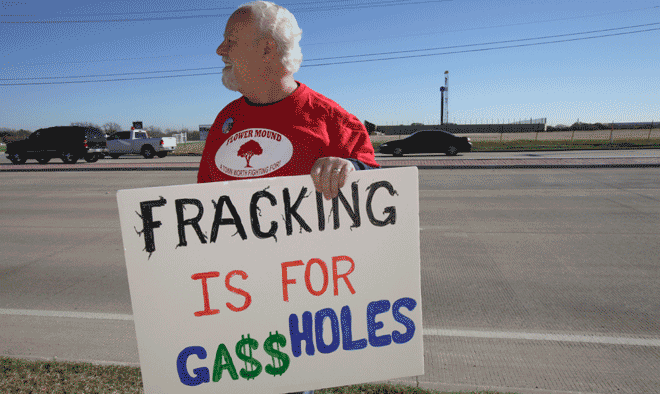Reposted from Science Progress: where science, technology, and policy meet

A survey of beliefs about hydraulic fracturing for natural gas
By Jordan Kincaid, MS’13, and Adam Briggle
To take the survey of beliefs on fracking and technology beliefs, click here.
Hydraulic fracturing, or “fracking,” for natural gas has become a lightning rod in debates about our energy future. President Obama and Governor Romney both endorsed the development of shale gas resources during the campaign. But despite this bi-partisan support at the federal level, much opposition remains. Indeed, Longmont, Colorado recently became the latest city to ban fracking.
The political disagreement also spills over into dueling studies. The University of Texas Energy Institute and the University of Buffalo Shale Resources and Society Institute conclude that fracking is environmentally benign. But Earthworks’ “Gas Patch Roulette” reports evidence of groundwater contamination in Pennsylvania related to gas drilling. There are even dueling documentaries, such as Josh Fox’s Gasland and Energy In-Depth’s Truthland. What explains the fervent division between supporters and opponents of hydraulic fracturing?
As we wrote in our July 12th contribution to Science Progress, we suspect that a complex interplay of ideology and politics is taking place beneath the surface of the fracking debate. When it comes to assessing new technologies, people may be driven less by traditional Right-Left ideals and more by beliefs about progress and risk. People either tend toward a proactionary stance about technology, confident in the human capacity to innovate, or they favor precaution, wary of the risks that accompany socio-environmental experimentation. But what factors influence whether one prefers precaution or proaction? What is the relationship between traditional politics and this new ideological rift? And what roles do socioeconomics and religion play?
To answer such questions, we created a survey, linked here and above. Our goal is to develop a more thorough understanding of the relationships between socioeconomics, political alignments, philosophical beliefs, and support or lack thereof for fracking. With your help, we can begin to map the political and ideological subsurface of this polarizing debate. Please consider completing the short survey and sharing the link so that others might do the same. Thank you for your participation.
Jordan M. Kincaid is a Visiting Fellow at the University of North Texas Center for the Study of Interdisciplinarity and a second year Master’s of Science candidate at the Bard Center for Environmental Policy. Adam Briggle is a faculty fellow at the University of North Texas Center for the Study of Interdisciplinarity and co-author with Carl Mitcham of the forthcoming book Ethics and Science: An Introduction (Cambridge University Press).
